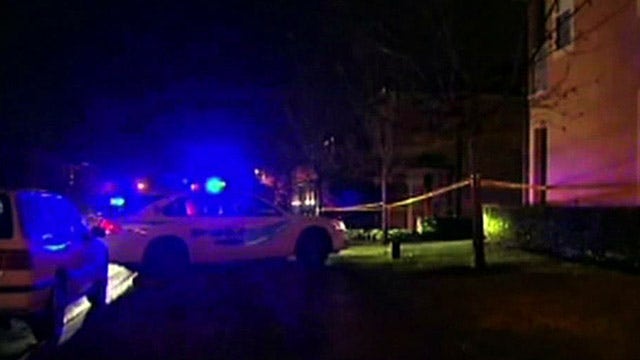The fateful four minutes between Zimmerman, Martin
'Shockwaves from Sanford': George Zimmerman was found not guilty, but questions about his encounter with Trayvon Martin may forever linger
This is a rush transcript from "On the Record," July 19, 2013. This copy may not be in its final form and may be updated.
GRETA VAN SUSTEREN, FOX NEWS HOST: Now the jury has spoken, but as in many trials, questions still linger about what really happened on that dark night, especially during that four crucial minutes.
Defense lawyer Ted Williams joins us. Nice to see you, Ted.
TED WILLIAMS, CRIMINAL DEFENSE ATTORNEY/FORMER D.C. HOMICIDE DETECTIVE: My pleasure, Greta.
VAN SUSTEREN: Ted, you and I went out to the scene. You were there with me in that -- in that -- as we walked back there. And there's this four-minute period, and the four-minute period is from the time that Trayvon Martin told Rachel Jeantel that he was going to run and the time of the first 911 call.
And I'm actually going to subtract about -- about a minute off and make it three minutes because I figure that someone has to go from hearing the fight to making the phone call to 911.
Taking a look at -- is that time reference important? And why?
WILLIAMS: Yes, it's important. And I can tell you, Greta, I've been wracking my mind about it because those are the four minutes where Trayvon Martin, if he so wished, could have ran and perhaps gone home.
And I tried to put myself in the place of Trayvon for those four minutes, and all I can think of is that four minutes to us -- and as you remember, Mr. O'Mara, the defense attorney, played it in court and emphasized these four minutes.
I have thought about it. Trayvon -- I wonder what was going through his head. Because remember, Greta, it's dark. It's raining. A silhouette is following you. You're on the phone with Jeantel. You're confused, perhaps. There's a lot of disillusionment going on. Do I want to bring this person home with me? Why is this person following me?
And all of that was going on in this young child's mind, I would have to believe, and that's a lifetime for him. Four minutes was shorter than that.
So it -- and Greta, you know how dark it was back there. I mean, you -- I heard you, and you're right. You couldn't even see about five feet in front of you when there was no silhouette lighting. So I keep wondering what was going through his head. Why didn't he run home? Why didn't he run to safety? Did he run towards Zimmerman? Did Zimmerman run after him? These are so many questions, Greta.
VAN SUSTEREN: Well, you know, Ted, and this is the important I think that viewers have to understand, and it's not what really did happen out there because nobody knows because no one can hear from Trayvon Martin.
But the prosecution had to prove beyond a reasonable doubt that George Zimmerman was the aggressor. And with that four-minute gap and the opportunity to run home, the jurors I can see quite reasonably would think, Well, I'm not sure whether he was really scared or whether he was (INAUDIBLE) to confront or whatever.
But absent proof beyond a reasonable doubt, that high burden, that's what the prosecution was dealing with that made it so difficult. It's the burden of proof in the case.
WILLIAMS: It was the burden of proof. And you're right, there -- I think, unfortunately, when you look at the evidence, when you look at this four-minute period, that there's clearly, in the minds of the jurors, could have been reasonable doubt. So I couldn't agree with you more.
Greta, until this moment, there's another question mark. Why did they go with second degree murder in this case? When you look at the totality of the circumstances, it is -- it's -- it's incredible.
VAN SUSTEREN: Ted, thank you.






















